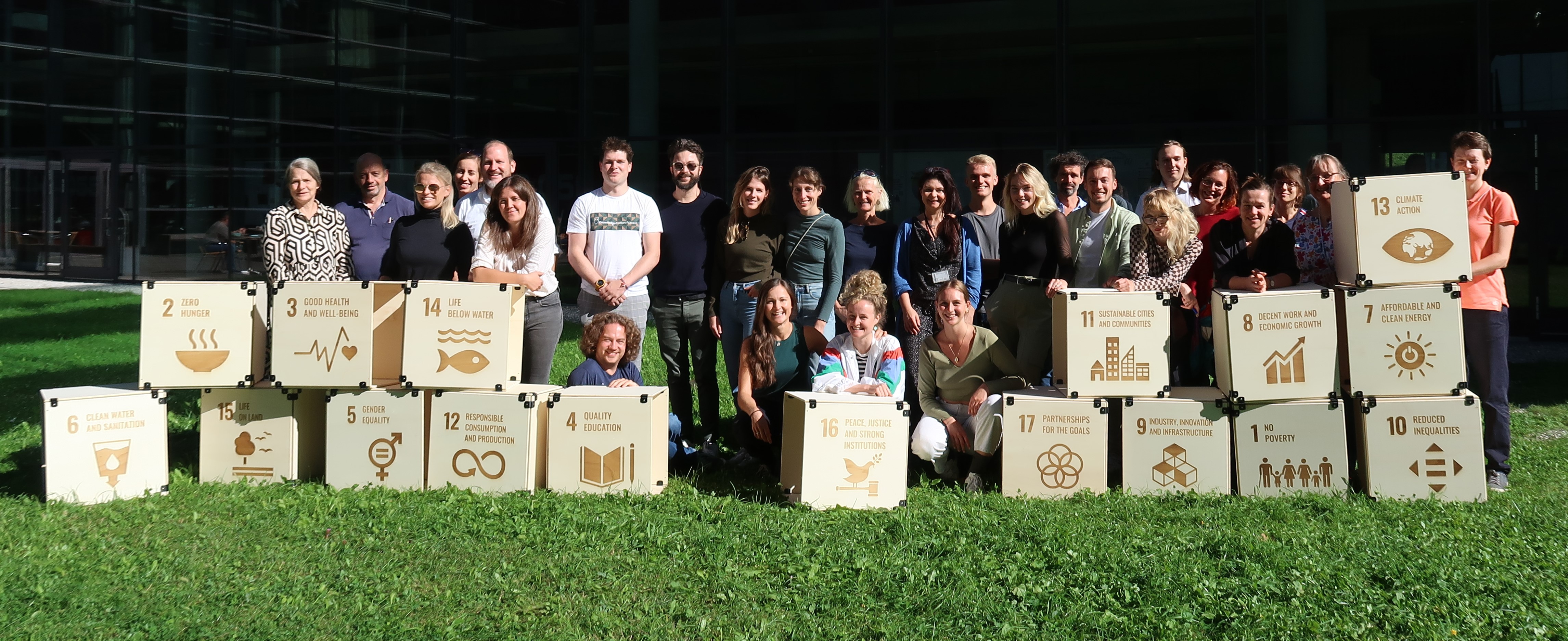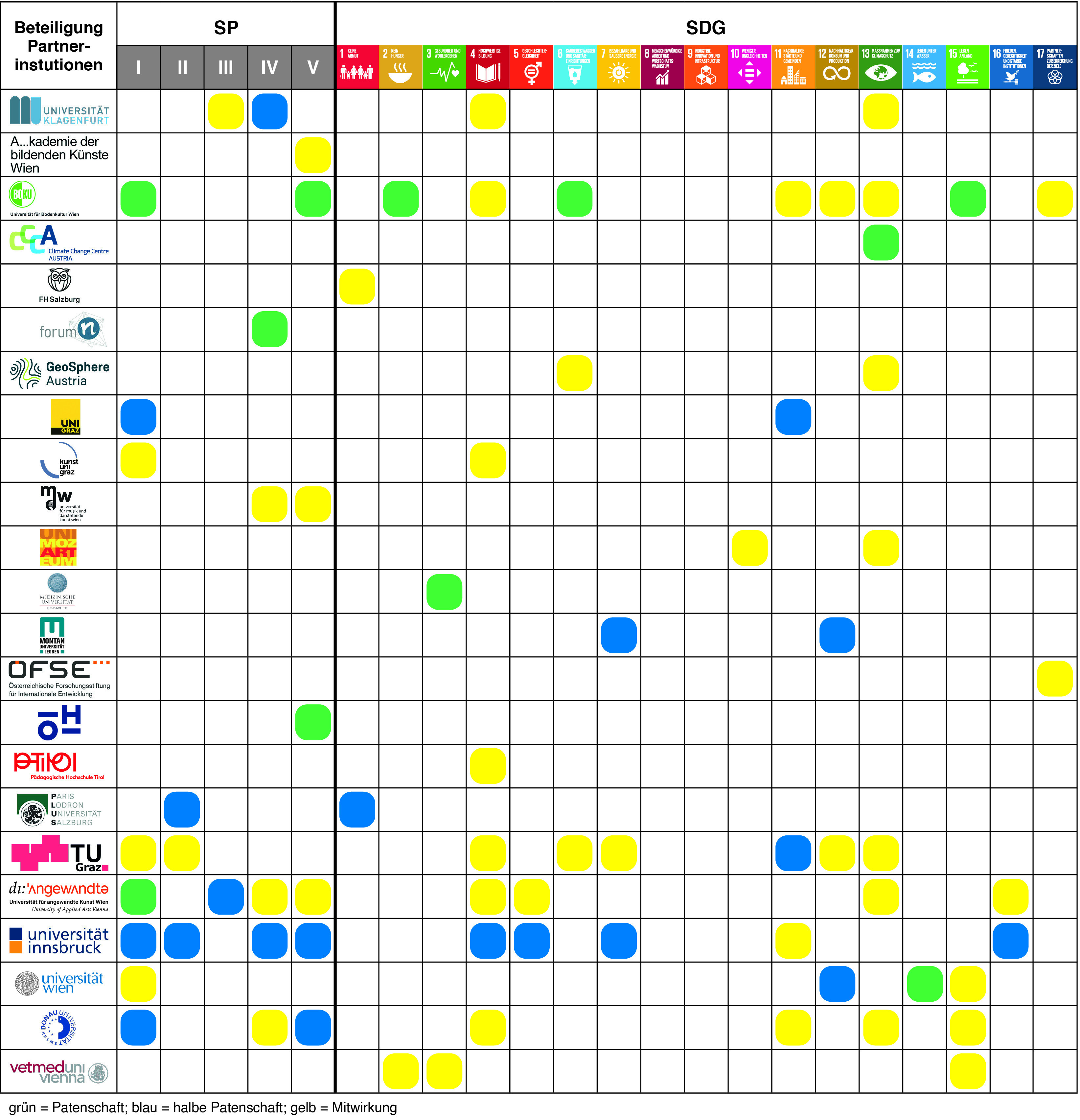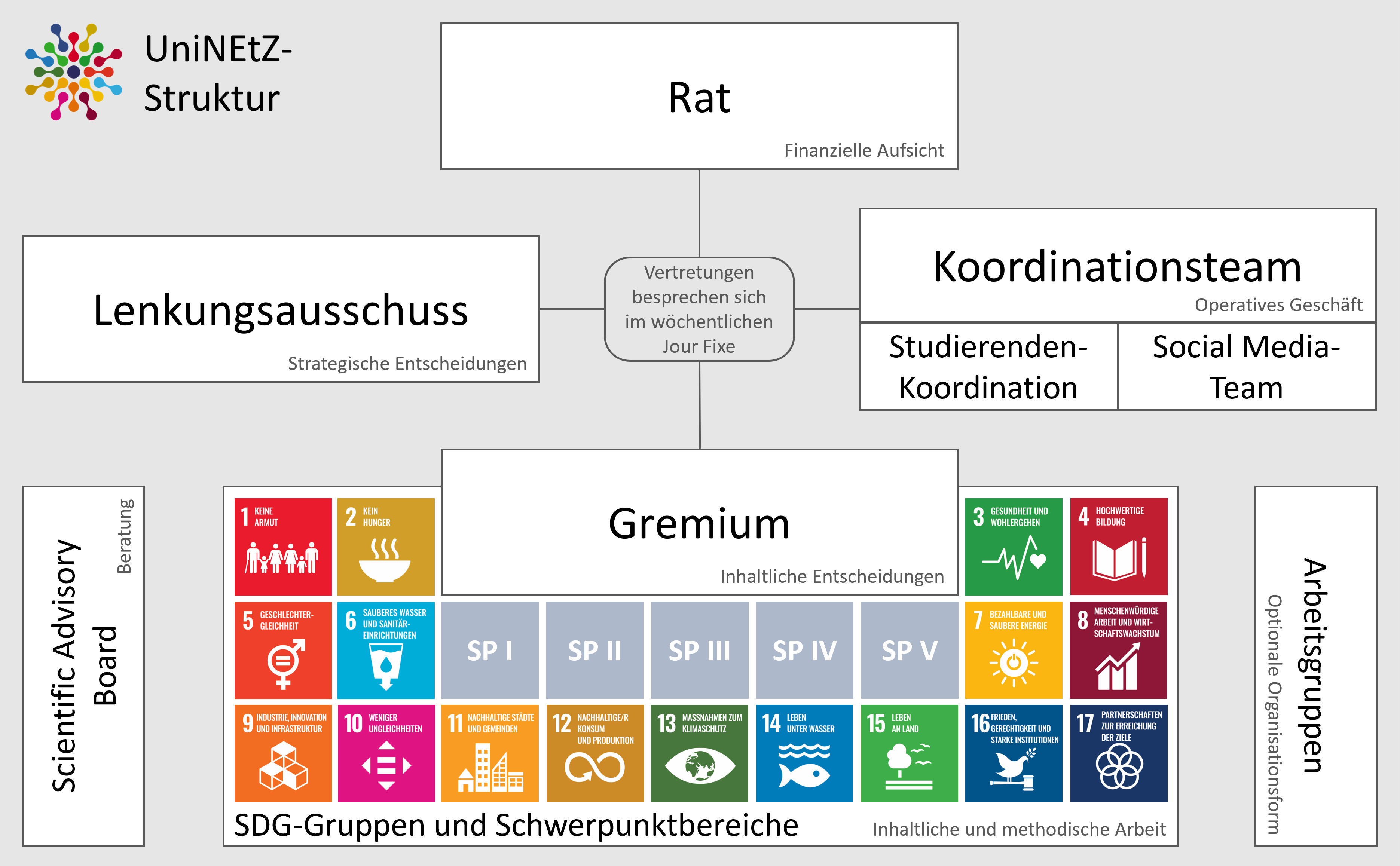In an innovative alliance, scientists and artists from 23 partner institutions have joined together in the project UniNEtZ to contribute to the implementation of the Sustainable Development Goals.
In the first phase (2019-2021) of this Austria-wide, cross-university project, the UniNEtZ Options Report was published, which shows the federal government concrete, future-oriented solutions for implementing the United Nations Sustainable Development Goals (SDGs). The special feature of UniNEtZ is that scientists from a wide range of disciplines have joined forces. Just as the SDGs are interconnected in many ways and can only be implemented in an interdisciplinary and transdisciplinary manner, UniNEtZ represents a broad spectrum of expertise from the humanities and social sciences, natural sciences, technology, art and music.
In the second project phase (2022-2024), the main focus of UniNEtZ is on making concrete contributions to the transformation of society in Austria. In order for universities to be able to credibly fulfill this claim of being pioneers of social transformation, they must first undergo a transformation process themselves. For this reason, networking between universities and establishing the SDGs in research, teaching and governance is another important aspect of the project. The SDG groups were therefore supplemented by corresponding priority areas. In addition, the UniNEtZ Policy Statement was drawn up as a bottom-up document by the people involved in UniNEtZ II, providing an impetus for discussion that led to intensive discussions and follow-up activities.

Participating Institutions
Vienna
- Academy of Fine Arts Vienna - akbild
- Climate Change Centre Austria - CCCA
- Austrian Foundation for Development Research -ÖFSE
- Austrian National Union of Students - ÖH
- University of Applied Arts Vienna - die Angewandte
- University of Natural Resources and Applied Life Sciences Vienna - BOKU
- University of Music and Performing Arts - MDW
- University of Vienna - univie
- University of Veterinary Medicine Vienna – VETMed
- GeoSphere Austria
Graz
Salzburg
Innsbruck
- Leopold Franzens University Innsbruck - UIBK
- Medical University of Innsbruck - MUI
- University College of Teacher Education - PH Tirol
Klagenfurt
Krems
Leoben

Sponsorships / participation by SDGs and priority areas (SPs). Status: December 2023
UniNEtZ Structure
The structure explained below was created in order to combine the content and methodological work of the individual groups and thus make a joint contribution to the transformation of society and universities.

UniNEtZ Council
The UniNEtZ Council is the highest decision-making body. In the UniNEtZ Council, each partner institution involved in the project is represented by a person delegated by its management. Each delegated person has one vote, independent of the sponsorships or participation of the associated institutions. The UniNEtZ Council is chaired by Franz Fehr.
UniNEtZ Steering Committee
The three-member Steering Committee (LA) manages the UniNEtZ project and acts at both strategic and operational levels. The LA is composed of Helga Kromp-Kolb (BOKU), Hans Stötter (UIBK) and Bernhard Kernegger (dieAngewandte).
UniNEtZ-Coordination
The UniNEtZ-Coordination manages the operational process of the project. It is the central contact point for all UniNEtZ committees and their members.
UniNEtZ Committee
The UniNEtZ committee consists of the representatives of the individual SDG groups and focus areas. It works primarily with regard to content and methodology and ensures good coordination between the groups.
UniNEtZ - SDG groups
The SDG groups work on the content of the respective SDG, represent the options developed in the first project phase and contribute to the implementation of the respective project goals within the framework of the focus areas.
UniNEtZ priority areas (SPs)
The five priority areas (SPs) were established in the second project phase. In these, the SDGs interact in terms of content and are encouraged to create joint interdisciplinary solutions.
Student-Coordination
The student coordinator organizes the involvement of students in the work of the project. It also organizes opportunities for students to engage with UniNEtZ content in greater depth.
Social Media Team
The social media team manages UniNEtZ's social media channels (Facebook and Instagram). Inquiries are welcome via the messengers of both channels and by email to social-media@uninetz.at.
UniNEtZ-Scientific Advisory Board
The Scientific Advisory Board (SAB) is composed of representatives of the scientific community and accompanies the project both scientifically and strategically-politically. Currently Nebojsa Nakicenovic (IIASA), Sigrid Stagl (WU Vienna, Department of Socio-Economics) and Markus Vogt (LMU Munich, Chair of Christian Social Ethics) and are part of the SAB.
UniNEtZ working groups
Working groups are established upon proposal of the LA and by decision of the UniNEtZ Council or the SDG Panel as needed, either permanently or to solve specific, time-limited tasks.
